SFU Goldcorp Centre for the Arts
Artists: Dr Debi Wong, Concept, Dramaturgy & Stage Director; Catalina Vicens, music director/2023 Artist-in-Residence; Stephanie Wong, Co-stage director; Marisa Gold, choreographer and dancer; Cecilia Duarte, mezzo-soprano, Dido; Juolin Lee, dancer; Yenny Lee, cover for Dido; Jessica McMann, Afarin Mansouri, Robyn Jacob, Composers; EMV Festival Players directed by Catalina Vicens: Chloe Meyers, violin 1; Majka Demcak, violin 2; Nolwenn Le Guern, viola da gamba; Margaret Little, viola & viola da gamba; Natalie Mackie, violone; Adrienne Hyde, lirone; Antoine Mallette-Chénier, triple harp; Lucas Harris, theorbo
Dr Debi Wong & Suzie LeBlanc, Creative Directors; Joanna Dundas, Production Manager; Elsa Orme, Stage Manager; Camilla Tassi, Projection Design; Vanka Salim (Chimerik 似不像), Lighting Design; Roberta Doylend, Costumes
A seamless blend of Baroque and contemporary song and dance, this interdisciplinary performance is a powerful reclamation of the story of Dido, The Queen of Carthage, and her legacy as a political leader, an empire builder and a woman of colour. This operatic performance, created by re:Naissance Opera, features commissioned works by contemporary composers Jessica McMann, Robyn Jacob and Afarin Mansouri, along with those of Baroque composers Henry Purcell and John Dowland. This project places Dido through a prism, in which her story as a multifaceted leader, lover and outcast are shown in their fullness.
“Creating ‘The Queen of Carthage’ has been a journey of rediscovering Dido, not as the tragic figure she has so often been depicted as in Western European Art, but as a powerful leader who shaped Western Civilizations and history. We forget that before Rome, there was Carthage and our performance asks the audience to consider: what might our world look like today if our Western European histories started with an empire founded by a woman of colour? What’s really exciting about this project is the amazing creative team we have assembled and the new commissions from Afarin Mansouri, Robyn Jacobs, and Jessica McMann. The contemporary music reminds us of the importance of engaging in a constant dialogue with our past and the impact of erasing people, like Dido, from our histories. We are thrilled to finally give her the platform she deserves and to present her as the multi-faceted and influential woman she truly was.” – Dr. Debi Wong, founding artistic director, re:Naissance Opera.
Generously sponsored by A Cappella Foundation (artist sponsor – Cecilia Duarte) , Jens & Linda Lee Henriksen, Joanie and Samantha Anderson, Mike & Kathy Gallagher, Anonymous, & Vincent and Zelie Tan
Co-produced by: Early Music Vancouver and re:Naissance Opera and Co-presented with SFU Woodward’s Cultural Programs
PROGRAMME
DIDO, OUR ANCESTOR
Robyn Jacob (b.1988)
When the Memory dies with the Body, it is still held in Time
Henry Purcell (1659-1695)
“See, see even night herself is here”, from The Fairy Queen, Z.629, Act I
Overture to Act I, from Dido and Aeneas (excerpt)
DIDO, THE EMPEROR
Henry Purcell
“Come away, fellow sailors”, from Dido and Aeneas, Act III
Additional Text by Debi Wong
Heinrich Ignaz Franz von Biber (1644-1704)
Battalia à 10
Der Mars
Presto
Die Schlacht
Adagio. Lamento der Verwundten Musquetirer
DIDO, THE LOVER
Alonso Mudarra (c.1510-1580)
Dulces Exuviae
Henry Eccles (1670-1742)
Sonata Quinta in E minor
Andante
John Eccles (1668-1735)
“Restless in thought”, from She Ventures and He Wins (1696)
Henry Purcell
“When I am laid in earth” (Dido’s Lament) from Dido and Aeneas, Act III
INTERVAL
DIDO, THE OUTCAST
Henry Purcell
“What Power Art Thou” (The Cold Song) from King Arthur, Z.628, Act III
John Eccles
The Mad Lover Suite
Slow Aire
Jessica McMann (b.1987)
Blood, Fire, Flames
John Dowland (1563-1626)
Semper Dowland, Semper Dolens
Flow my tears (Lachrimae Antiquae)
DIDO, THE DREAMER
Barbara Strozzi (1619-1677)
Improvisation on Lagrime mie
Afarin Mansouri (b.1974)
I choose to love you in silence
EPILOGUE: IN HER DREAMS, SHE DANCES
Henry Purcell
Dance from Dioclesian, Z.627, Act V
Chaconne from King Arthur Z.628
TEXTS AND TRANSLATIONS
Alonso Mudarra: Dulces exuviæ
Virgil, Aeneid, Book IV, Lines 651-660
Dulces exuviæ, dum fata deusque sinebat,
accipite hanc animam meque his exsolvite curis,
Vixi et quem dederat cursum fortuna peregi,
et nunc magna mei sub terras ibit imago.
Urbem præclaram statui, mea mœnia vidi,
ulta virum pœnas inimico a fratre recepi,
felix, heu nimium felix, si litora tantum
numquam Dardaniæ tetigissent nostra carinæ.
Dixit, et os impressa toro, Moriemur inultæ,
sed moriamur, ait; sic, sic iuvat ire sub umbras.
“Objects so close and dear to me, while my Fate will allow it,
Receive from me my burdened soul; rescue me from these heavy troubles.
I lived and completed all exploits assigned me by Fortune.
All trace of my greatness beneath the earth will be buried.
“I have raised up a noble town, built my fortifications.
I avenged my husband, and I punished my brother, the traitor.
Happy, alas, but too happy. If only the Trojans,
Roaming exiles from Troy, and their ships had not come to our shores!”
This said, her mouth pressed to her pillow, unavenged she will perish.
“But let me die,” she cries out, thus, thus sweetly fading in shadows.
Please note, all other pieces are in English; texts will not be provided.
PROGRAMME NOTES
“When I am laid in earth, may my wrongs create no trouble in thy breast.
Remember me, remember me, but forget my fate!”
– Nahum Tate, Librettist of Dido & Aeneas
Dido, The Queen of Carthage, is a figure that has captivated my imagination since I first encountered Henry Purcell’s beloved aria, “When I am Laid In Earth” from his opera Dido and Aeneas. I discovered the piece as a second-year voice student at the University of British Columbia after I made the switch from training as a soprano to a mezzo soprano. I remember cracking open my very first copy of the infamous anthology “25 Arias for Mezzo-Soprano” and there was Dido. Waiting for me.
Dido’s haunting aria has captivated the imaginations of countless creatives – from Jeff Buckley to Jessye Norman – and Nahum Tate (librettist) and Henry Purcell’s famous opera is one of the few English works to become embedded in the canon of regularly performed operas today. When up against the likes of Carmen, The Marriage of Figaro, and all things Verdi, it is curious that this incomplete, English, Baroque opera written for a boarding school performance did not get permanently lost to obscurity.
After submerging ourselves in this opera and in her story, all I can say is that it feels nearly impossible to turn away from Dido. Whether you meet her through Virgil’s Aeneid, Purcell’s music, Norman or Buckley’s haunting performances, there is simply so much left to the imagination. For the curious creator and the curious audience, engaging and reengaging with Dido’s story and wondering what could exist in all the empty spaces becomes an exercise in leveraging collective creativity.
Purcell and Tate’s operatic depiction of Dido is the most dominant version of her tale in Western European cultures today, the libretto dramatically interpreting the events from book IV of Virgil’s Aeneid. In both sources, Dido’s story begins with the inner turmoil she is experiencing after having listened to Aeneas recount his history up to the day of their fateful encounter on Carthagian shores. Her sister, Anna, recognizes this turmoil as the pangs of passion and desire, and encourages Dido to pursue Aeneas. The Fates and the gods conspire to bring them together, but unbeknownst to Dido and Aeneas, Aeneas is fated for Italian shores – his destiny bound to the founding of ancient Rome. Shortly after they express their love for one another, Aeneas learns of his destiny and makes the decision to obey the will of the gods. Dido is heartbroken and angry. She accuses Aeneas of deceit and treachery and sends him and his people away. Dido, who cannot bear the shame and heartbreak nor the fate that awaits a woman who has been abandoned by a man, takes her own life.
To be rather blunt, it is a pretty typical operatic storyline and an even more typical depiction of a leading female figure. As beautiful as the music is, this very narrow portrayal of Dido – the woman who rallied a community to leave behind the oppression faced in their birthlands and sail across the sea on the mere hope of establishing a better life – seems to miss a few marks.
With so much left untold and unexplored, I can’t help but wonder, what else? What else is there to this myth, this history? How should we remember Dido? How should we tell her story?
The renowned Latin writer Virgil depicted [Dido] as a neglected and grieving princess, voluntarily ignoring her status as the founder of a powerful city. Other authors often portrayed her as a grieving lover who, after being seduced and abandoned by the Trojan Aeneas, committed suicide by setting herself on fire.
– Dr. Halima Ouanada, Women’s Rights, Democracy and Citizenship in Tunisia
Whether we accept Dido as a mythological goddess or historical figure, Carthage was more than a backdrop for a tragic love story. Its legacy still has influence over our world today. In its time, it was a shining beacon of ancient civilization, a hub of trade, culture, and innovation. Their advanced ships ventured into uncharted waters, establishing new trade routes for its bustling markets filled with goods and merchants from diverse lands. It was a city whose peoples boasted a rich and complex history and whose language and alphabet laid the foundations for all Western writing systems. Its unique mixed political system influenced the likes of Aristotle and other critical thinkers to come; whose radiance preceded and rivaled that of Rome; whose foundations were envisioned, laid and fostered by a woman around 813 BCE.
It’s the last two points that always make me pause: before Rome, there was Carthage; Carthage was founded by a woman. When I think about the story we know about Dido and Aeneas, within the confines of our current socio-political systems, I can see how their tale becomes an allegory for the domination of Rome and patriarchal systems. Dido’s powerful empire would thrive for hundreds of years before succumbing to Rome in the famous Punic wars of 264 – 146 BCE. It would be over a hundred years later, around 30 BCE, that Virgil rebrands Dido’s legacy into a secondary plot and tragedy that enhances the tales of Aeneas’ heroism and the foundation of Rome.
Again, my imagination takes over: What if our understanding of Western European civilizations extended beyond Rome, reaching back to Carthage, to Dido, to a woman from Tyre (modern-day Lebanon)? What if she was depicted in our histories and mythologies as fully represented and nuanced as most of her male contemporaries?
Creating ‘The Queen of Carthage’ has been a journey of rediscovering Dido, not as the tragic figure she has so often been depicted as in Western European Art, but as a powerful, multi-faceted leader who shaped Western Civilizations and history. The program is made up of six sets that explore different aspects of Dido’s innerworld juxtaposed against the expectations placed on her because of her identity. The historical and contemporary works presented in this program amplify the continuous and ever evolving dance between past and present, asking us to consider how our interpretations of history impact our present and future.
We open with Dido, Our Ancestor, in which we call forward Dido’s story and reclaim her legacy as part of an unbroken but often unseen lineage of female-identifying, gender diverse and Black, Indigenous and racialized leaders. With Robyn Jacob’s new piece, When The Memory Dies With The Body, It Is Still Held In Time we consider the impact of erasing people, like Dido from our histories. Jacob’s lyrics (created by herself) raise poignant questions for us all to consider: “What is the sound of all the stories being told together? What is the sound of all the stories telling stories? What is the sound of all possible worlds?”
This is followed by Dido’s rise to leadership, highlighting her prowess as a sea-farer, her success in maritime navigation, technological innovation, and her role as one of the early empire-builders in Western European civilization. At the same time, we emphasize the discord and struggles female-identifying and gender diverse people experience as they rise up in society and are expected to take on roles in structures that were created for and by men. The set concludes in a musical depiction of the isolation that is often experienced by women in leadership as expressed through Heinrich Ignaz Franz von Biber’s Lamento der Verwundten Musquetirer.
In Dido, The Lover, we explore an intimate dialogue between Dido and her inner psyche, breaking away from the traditional narrative that is bound to Aeneas. Instead, famous works such as Alonso Mudarra’s Dulces Exuviae, a setting of Virgil’s version of Dido’s demise and Purcell’s emotive When I am Laid In Earth create an introspective commentary on the perpetual conflict between self-doubt and self-love. This inner struggle is embodied in the contemporary dance created by Marisa Gold and performed in duet with Chloe Meyers’ rendition of the andante movement from Henry Eccles Violin Sonata Quinta in E minor. The first half of the program closes with Dido’s voice echoing throughout the hall, no longer as an ending note but as an invitation. As we transition into the second half of our program, we collectively wonder: how shall we remember her?
The second half opens with Dido, The Outcast, a musical and thematic rumination on the tropes that are assigned to female-identifying people when they do not fit into societal expectations, such as the “mad lover” and the “witch”. These themes are expressed in Jessica McMann’s “Blood, Fire, Flames”. The music is energetic and furious, evoking the text and music of the witches from Purcell and Tate’s opera as well as pleading and lamentful melodies. The full set moves through the gamut of emotions that women and equity-seeking people can experience when they feel they are always being ignored, or not taken seriously or looked at in the light of “otherness” – from the feelings of isolation in Purcell’s Mad Genius, to the frustration in McMann’s piece, to the heaviness of grief felt in John Dowland’s iconic Flow My Tears.
Dido, The Dreamer, asks us to contemplate Dido as a person who dared to bring her dreams to fruition. In an improvisation inspired by Barbara Strozzi’s Lagrime Mie, Music Director Catalina Vicens and Gambist Nolwenn Le Guern embody both the historical and contemporary, connecting our story and our new commissions to a lineage of female creators, past and present, who are slowly gaining visibility. We close our story of Dido with Afarin Mansouri’s new piece, I Choose To Love You In Silence. Mansouri created this piece as a response to Purcell’s lament but returns agency to Dido. Her love for herself and for others is reframed as choices she makes freely and willingly, and they are no longer byproducts of the fates and external forces. Mansouri’s piece leaves us with a new image of Dido who calls on us all to remember her for her accomplishments, her choices, her legacy, and her joy.
The program concludes with an Epilogue that brings forward two famous dances from Purcell’s The Dioclesian and King Arthur. We have experienced Dido’s story as a tragedy for thousands of years now, and in our finale, we reimagine her as a person who reveled in her life, who loved with agency, and led with a powerful vision for a new future. Now we invite you, our audience, to envision a world that consistently honors and uplifts the lives of female-identifying people, especially Black, Indigenous and racialized peoples – past, present, and future – who lead with strength, tenacity, and joy, wholly embracing their individual identities.
- Dr. Debi Wong
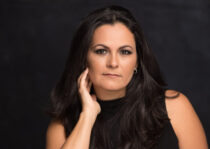
Cecilia Duarte, Dido, mezzo-soprano
“A creamy voiced mezzo-soprano.” -The New York Times-
Soloist in the Grammy-Winning album Duruflé: The Complete Choral Works, Cecilia specializes in early music and contemporary opera. Role premieres include Renata in the Mariachi Opera Cruzar la Cara de la Luna, (HGO, Chicago Lyric Opera, San Diego Opera, El Paso Opera, NYCOpera, Europe and South America); as well as Renata in El Milagro del Recuerdo, (HGO, Arizona Opera); Jessie Lydell in A Coffin in Egypt, (HGO and the Wallis Annenberg Center in L.A.); Harriet/First Responder in After the Storm (HGO); Alicia in Some Light Emerges (HGO); and Alma in the new opera web series Star Cross’d, with Houston Grand Opera.
Other operatic roles include Linda Morales in Laura Kaminski and Kimberly Reed’s Hometown to the World, Maria in Maria de Buenos Aires, Loma Williams in Cold Sassy Tree, and Sarelda in The Inspector. Concert collaborations include the Five Boroughs Music Festival in NY, ROCO Houston, and the Kaleidoscope Ensemble. Early music experience includes Ars Lyrica Houston, The Boston Early Music Festival, Mercury Houston, Seraphic Fire, and the Bach Collegium San Diego, among others. Cecilia just released her first solo album, Reencuentros, a compilation of Latin American songs under the Reference Recordings label. Upcoming performances include the Boston Early Music Festival, Minnesota Opera, The Bach Collegium San Diego, and Pacific Music Works.

Marisa Gold, dancer & choreographer
Marisa Gold is an intuitive multidisciplinary artist with a passion for all things soulful – an expressive dancer, poet, vocalist, choreographer, stylist, and actor whose work is embedded in self-reflection, a deep love for humanity and reverence for our planet earth. She has trained in a variety of modern/contemporary dance styles, with a BFA in Dance (SFU), a Certificate of Completion from The Ailey School Independent Study program (NYC), and The Graham School (NYC).
Her professional experience includes a broad range of dance styles – modern/contemporary concert dance, experimental street style performance, musical theatre, as well as film and TV work. As a poet Marisa has performed spoken word at various slams across BC. Marisa’s artistic influences are strongly rooted in the heart space of her ancestors. She feels powerful and expansive when she remembers all who have come before her in artistic and self-expression. As a creator and performer, Marisa continues her poetic wandering; delving further with love into the mystery of our collective humanity as well as her own.
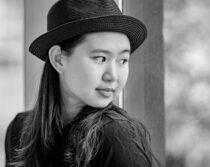
Juolin Lee, dancer
Juolin Lee is a Taiwanese-Canadian emerging dance artist who is fascinated by the transformative power of dance. Juolin feels fortunate to live, learn and create on the unceded territories of the Musqueam, Squamish and Tsleil-Waututh Nations. She completed her training in Modus Operandi Contemporary Dance program in June 2021. Juolin has a deep love and respect for the dance community she’s immersed in. She has the pleasure to work with Natalie TY Gan, Ziyian Kwan, Sammy Chien, Idan Cohen, Arash Khakpour, Emmalena Fredriksson and Zahra Shahab.
Dance to Juolin is a portal to indescribable emotions and complex, swerving stories. Through openness and curiosity she wishes to continuously unpack her idea of self and her relationship with the world.
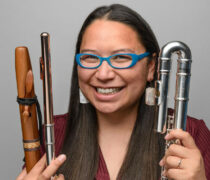
Jessica McMann, composer
Jessica McMann is an Alberta-based Cree multi-disciplinary artist. She interweaves land, Indigenous identity, history, and language throughout her dance and music creation/ performance practice. A classically-trained flutist, she holds a Bachelor of Music degree from the University of Calgary and an MFA in Contemporary Arts from Simon Fraser University. Her work fuses together traditional language and dance with her own contemporary experiences as an Indigenous woman and Two-Spirit person with focus on land-based creation and ideas of connection, disconnection, and home.
In 2017 her Too Good; That MAY Be, an immersive soundscape performance, was shown at the Urban Shaman Gallery in Winnipeg as part of The 60’s Scoop; A Place Between. Her compositions include Muskwa’s Mountain Home (2021), Inni (2018) and soundscapes including Beguiling the Land (2020). Jessica is currently the City of Calgary’s Curator of Indigenous Art. She is also co-founder and co-director of Wild Mint Arts, an Indigenous arts company and is a Laureate of the Hnatyshyn Foundation REVEAL Indigenous Art Awards (2017). In 2021 she released her first Indigenous-Classical album Incandescent Tales, and is currently working on a second album to be released this year.
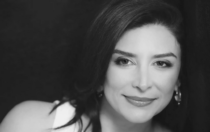
Dr Afarin Mansouri, composer
An internationally recognized composer, producer, and opera artist, Dr. Afarin Mansouri’s unique and dynamic style connects her Iranian roots with her Western aesthetic and training. Her approach to opera creates a unique cross-cultural experience for artists and audiences to connect with Eastern cultures, through language, poetry, storytelling, traditional instruments and more.
She is the recipient of many awards and accolades for her contributions to the Canadian music and operatic scene including the Canada 150 Medal and the Kathleen McMorrow Music Award. Throughout her career, Afarin has collaborated with many organizations and festivals across North America including: Toronto Symphony Orchestra, National Ballet of Canada, Tapestry Opera, Canadian Opera Company, Seattle Opera and Queen’s University to name only a few. Her orchestral prelude, Mithra – the goddess of love and justice, was commissioned and performed by Toronto Symphony Orchestra for their 100th-anniversary celebrations in 2022 and immediately became a symbol for the global Women, Life, Freedom Movement – representing the voice of all women across the Middle East.
Her passion for opera and serving the community has led Afarin to found Cultureland Opera Collective, an organization with a mission to produce operas with cross-cultural elements – providing a platform for emerging artists to develop their skills, collaborate with experts and showcase their artistic talents. In 2022, her operatic compositions were premiered at the Four Seasons Centre for the Arts as part of the Celebrating Asian Heritage Month with the Canadian Opera Company. As an advocate for social and artist equity, she has served as a member of the Canadian Opera Company’s DEI committee, the councilor of Canadian League of Composers, as well as the co-founder and past artistic director of Iranian-Canadian Composers of Toronto (ICOT).
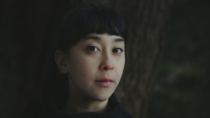
Robyn Jacob, composer
Robyn Jacob is a pianist, singer, composer and educator who lives and works on the unceded territories of the Sḵwx̱wú7mesh, Xʷməθkʷəy̓əm and Səl’il’wətaʔ Nations, also known as Vancouver. She has toured Canada and internationally with her avant-pop project Only A Visitor, who have released four albums to date, recently signing on with Mint Records. Her recent composition projects explore writing for unusual ensembles, as well as collaborations with visual artists and instrument makers. 2023 will see the premiere of new works commissioned by Re:Naissance Opera, Chor Leoni, as well as Vancouver Inter Cultural Orchestra.
In 2021 she was commissioned by Sō Percussion and Architek Percussion to create two new works for percussion ensemble. In 2020, she was commissioned by Little Chamber Music to write A World In Each for 42 strings, for which she received honourable mention in the 2022 SOCAN Her Music Awards. In 2019 she was commissioned to write a piece for percussion quartet by Grammy winning Third Coast Percussion as part of their Emerging Composer Project. In early 2020 she celebrated the release of Earth Leaps Up on the label elsewhere music with her duo The Giving Shapes in collaboration with harpist Elisa Thorn. Since 2012 she has been part of the multi-disciplinary arts collective Publik Secrets, currently artists in residence at the Hadden Park Field House with the City of Vancouver. In 2013 she toured Bali with Gamelan Gita Asmara, and has since been co-leading Gamelan Bike Bike. Robyn has received a Bachelor’s degree in Music from the University of British Columbia, and has completed residencies at the Banff Centre for the Arts and Joya AiR in Spain. She has been teaching music and piano privately for over 15 years.
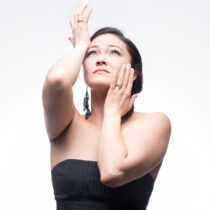
Dr Debi Wong, stage director
Dr Debi Wong is a Canadian mezzo-soprano, actor and stage-director. She has been praised for possessing a “rich-toned” voice (The Vancouver Sun, CAN) and delivering and creating performances that are “mind-blowing” (Schmopera, CAN) and “unique and magical” (Rondo Classic, FI). She is also the founder and artistic director of the Vancouver-based opera company, re:Naissance.
Debi performs regularly with White Sparrow, her award-winning lute and voice duo co-founded in 2011 with Solmund Nystabakk (lute). The duo has given recitals across Europe and North America, most notably in the Stockholm Early Music Festival series, at the BRQ Vantaa Festival, the Copenhagen Renaissance Festival, the Laus Polyphinae Festival in Antwerp and in the Fabulous Fringe series at the Utrecht Early Music Festival. This season, their debut recording, Mister Dowland’s Midnight was released on SibA/Naxos records.
Debi is a graduate of Yale University (M.Mus.) and The Yale Institute of Sacred Music (Diploma in Sacred Music), where she studied vocal performance and was the recipient of the 2010 Margot Fassler award for outstanding performances in sacred music. She is currently a doctoral candidate at the Sibelius Academy in Finland.
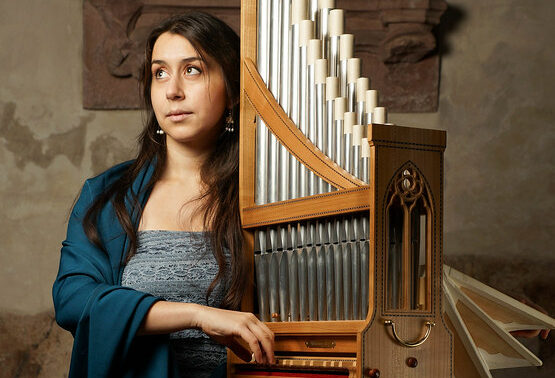
Catalina Vicens, music director
Born in Chile and currently residing in Italy, Calatina Vicens is recognized by the international press as “one of the most interesting musicians in the field of early music.” Her approach to historically-informed performance and musicological research has led her to become one of the most versatile and sought-after historical keyboard performers and teachers of her generation.
In 2013 she founded ensemble Servir Antico, with whom she aims to shed light on the lesser-known repertoire and intellectual heritage of the Humanistic Period (13th-16th century) while using the concert stage to share with the audience the voices of these visionaries of the past, and to also using it to amplify new voices. In 2021, Ms. Vicens was named curator of the Tagliavini Collection in Italy, one of the largest historical keyboard collections in Europe, and artistic director of Museo San Colombano in Bologna. She is also harpsichord/research lecturer at the Royal Conservatory of Brussels (Belgium) and Visiting Professor of Harpsichord at Oberlin Conservatory (USA), amongst many other prestigious appointments.
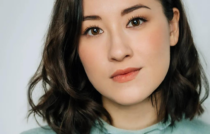
Stephanie Wong, assistant stage director
Born in Hong Kong, Stephanie Wong (she/her/hers) is a multidisciplinary artist now living on the ancestral and unceded lands of the xʷməθkwəy̓əm (Musqueam), Skwxwú7mesh (Squamish), and Səl̓ílwətaʔ (Tsleil-Waututh) peoples, also known as Vancouver. A graduate of Studio 58’s acting program, she has toured across Canada and the USA, working professionally as an actor, set designer, director and creative collaborator.
She strives to use her voice and platform as a vehicle for activism and education. By honouring the intersections of her professional and personal experiences, her art seeks to amplify the stories of those most unheard, exploring themes of culture, connection, and coexistence. She is a core member of the emerging theatre collective happy/accidents, and is the Artistic Associate at re:Naissance Opera. Her first short film bàba (which she wrote, directed, and designed) has made its way to film festivals in Vancouver, New York, LA, London, and Berlin. She has worked for various theatre companies nationally, highlights including: Theatre Replacement, The Chop, Neworld Theatre, Buddies in Bad Times, The Arts Club, Studio 58, Western Canada Theatre, Electric Company Theatre, Gateway Theatre, Touchstone Theatre, Zee Zee Theatre, and Green Thumb Theatre.
Media
Cecilia Duarte, mezzo-soprano, sings Francesca Caccini:




